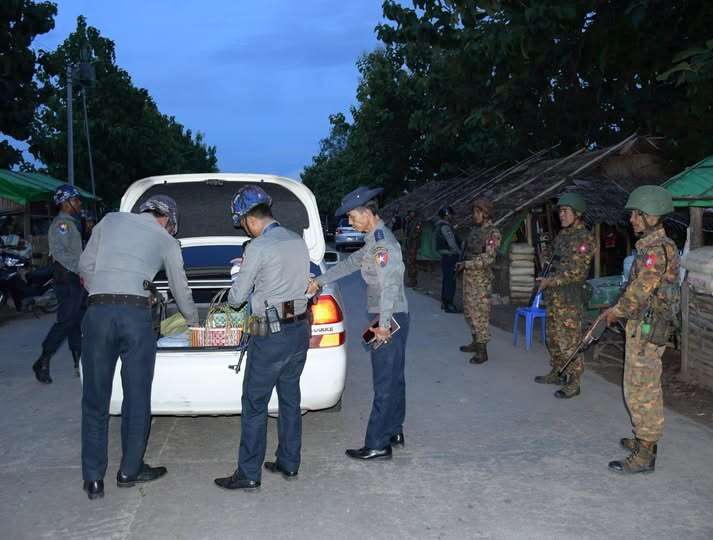
Local residents have revealed that military officers are conducting illegal extortion at military council checkpoints in Taungoo Township, Bago Region, specifically at Kapaung Gate, Sittaung Bridge Gate, and 4-Mile checkpoint. The checkpoints are being overseen by Captain Phyo Wai Win from Communication Unit 10, a Captain from the Combat Operations Unit, and Captain Zaw Min Htike from the Accommodation Unit, who are leading these extortion activities.
The military council established these checkpoints on major roads and entry points to the city, claiming they were necessary for Taungoo’s security. Previously, these checkpoints primarily focused on security checks, with only voluntary donations being collected. However, following the outbreak of conflicts in Nyaunglebin, Kyaukkyi, and Kyaukdaga areas, the military council officially restricted the transportation of food supplies and medicine. Despite these restrictions, passage through checkpoints became possible with monetary payments, effectively transforming these security checkpoints into profit-generating stations.
Currently, these checkpoints are forcibly collecting money from all passing travelers. Private cars must pay a minimum of 5,000 kyats per vehicle, while commercial trucks are required to pay amounts ranging from tens of thousands to hundreds of thousands of kyats, depending on the type and quantity of goods being transported. For instance, trucks carrying a small number of rice bags must pay 10,000 kyats, while those carrying larger quantities are charged between 70,000 and 100,000 kyats. Additionally, vehicles transporting fruits such as durian are not only required to pay tens of thousands of kyats but are also forced to hand over some of their cargo when officers demand it for their personal consumption, claiming it’s for the captain’s use.
Local residents have filed complaints about these illegal collection practices with relevant military council authorities, but no action has been taken. Soldiers stationed at these checkpoints collect money in large containers and threaten those who cannot pay with denial of passage. Witnesses report that the soldiers are aggressive in their demands, and these practices have significantly impacted local residents’ daily travel and business operations. The situation has created a severe burden on the local population, who must factor these unofficial payments into their transportation costs, affecting both personal movement and commercial activities in the region.



